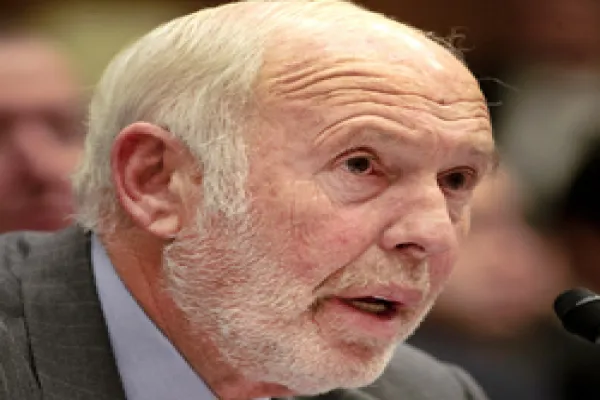Nearly two thirds of all hedge funds lost money last year, one of the worst years for hedge fund performance in a decade. The industry’s woes are reflected in Institutional Investor’s 18th annual Rich List ranking of the 25 highest-earning hedge fund managers.
Altogether, the top 25 earners took home a collective $11.15 billion. This represents a nearly 28 percent decline from the previous year’s ranking and only a slight increase from the $11 billion two years ago, which in turn was the worst year since 2005. Roughly half of the people who qualified for last year’s top 25 ranking failed to make the list this year — including Appaloosa Management’s David Tepper, who ranked second last year after earning $1.5 billion in 2017.
Because so many of the Rich List regulars lost money last year, all a manager needed to have earned to qualify for this year’s ranking was $50.8 million. This was the lowest minimum needed to crack the top 25 since the second year of the survey. Last year a manager needed to have pulled in $225 million to qualify for the top 25, compared with $130 million the year before.
The dearth of managers who earned the gargantuan sums needed to qualify for the Rich List is reflected in the lack of a Second Team ranking for the first time in several years. There simply weren’t enough candidates who earned enough last year for us to produce a meaningful ranking of 25 additional managers.
Most of the top earners on this year’s list are multistrategy managers, quantitative managers, or fixed-income and debt specialists — reflecting what a difficult year 2018 was for equity-focused managers.
Just four of the 25 top earners this year are stock pickers, and one of them qualified because he was mostly betting against the stock market going up: Odey Asset Management’s Crispin Odey, who makes his Rich List debut this year after earning $530 million, ranking seventh overall. The Standard & Poor’s stock index lost 4.4 percent last year.
The three other equity specialists to make this year’s ranking are Tiger Global Management partners Chase Coleman and Scott Shleifer and activist investor Christopher Hohn, founder of London-based TCI Fund Management.
Bridgewater Associates’ Ray Dalio tops the overall ranking this year with $2 billion, after his Pure Alpha strategy posted a 14.6 percent gain, its best performance since 2011.
This is also the first time he has headed the Rich List since the 2012 survey, after earning $3.9 billion the previous year.
For more than a year, Dalio has been warning that interest rates are bottoming out and that the economy is in the “late cycle” phase of the short-term debt/business cycle. He also famously called out capitalism in a widely read two-part essay on LinkedIn, decrying the increasing wealth gap between the highest and lowest earners and offering suggestions for how to fix it.
Quant extraordinaire Jim Simons, the legendary founder of Renaissance Technologies, ranks second, having earned $1.5 billion despite playing a mostly passive role at the firm he founded. He is the only person to qualify for the Rich List in all 18 years of its existence.
Steven Cohen of Point72 Asset Management — a Rich List regular when he headed up the now defunct hedge fund firm SAC Capital Advisors — is back for the first time in five years. Cohen ranks No. 22 after earning $70 million. His earnings are entirely the result of gains on roughly $7 billion of personal capital invested in his firm.
Cohen is one of two people who qualified for this year’s ranking even though their main funds posted gains of less than 1 percent. The other is TCI’s Hohn, who ranks 21st.
Five people are making their debuts on the Rich List this year. They are Odey, Steven Schonfeld of Schonfeld Securities, Jason Mudrick of Mudrick Capital Management, J. Tomilson Hill of the Blackstone Group, and Robert Shafir of Och-Ziff Capital Management.







